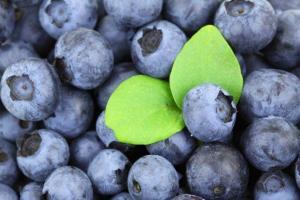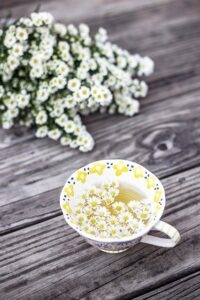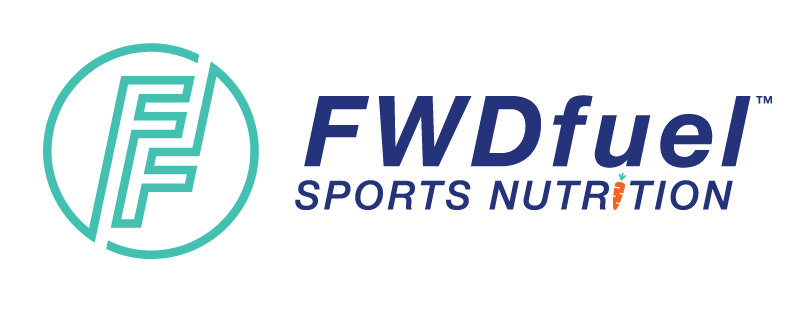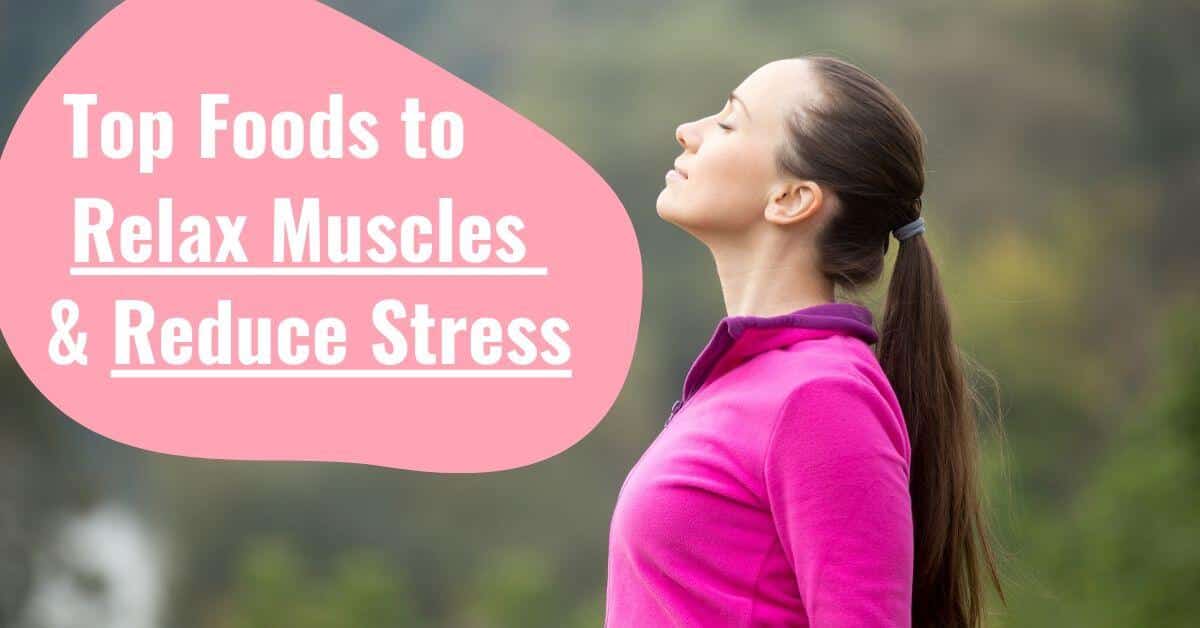In just a 24 hour period, the typical human being today faces a bombardment of stimuli. We constantly see “Look here! Click this! Do that!” Active individuals are subject to even greater levels of physical, mental, and emotional stress due to the demands of training regimens.
Is there any way to combat it?
Occasional stress is likely and even helpful at times. Chronic stress, however, can and should be lessened. While stress is unavoidable, how we manage it can make or break us.
While there are many holistic approaches to reducing stress and relaxing our muscles, the most powerful tool comes with the simplest answer… Food.
Why is this you ask? Food comes in direct contact with our gut, setting the stage for a series of reactions in the body. Here we are…back to the gut!
Almost 80% of the body’s immune system is found in the gut, and based on the food that comes in contact with this beautiful ecosystem determines how our gut, body, and brain may react. Are we going to have increased cortisol and stress or did we consume calming foods that will help reduce our stress?
Our gut and brain communicate directly through the vagus nerve. In other words, neurotransmitters that regulate feelings and emotions are produced in the gut and then travel to the brain to influence the body’s stress response.[1] More often than ever, research is linking positive effects on symptoms of anxiety and stress with attention to the intestinal microbiota, a.k.a the balance of good and bad bacteria in our gut![2]
By understanding the imperative role diet plays in controlling stress, it makes choosing foods that relax muscles & reduce stress a no brainer! This article will provide 13 of the best stress-relieving foods to feed your body for optimal health and performance.
Let’s dig into some calming foods and start feeling better TODAY.
Top Stress Reducing Foods for Mental and Psychological Stress
1. Dark Leafy Greens and Cruciferous Veggies

The next time you’re planning to knock the leafy greens from your plate, think again!
Dark cruciferous veggies are highly influential in our body’s immune and detoxification systems. In fact, not getting enough fruits and vegetables in your daily diet can increase your risk of anxiety disorders.[3] Adequate levels of folate and various B-vitamins that are abundant in dark veggies are key for neurotransmitter regulation, thus supporting a stress-free body and mind.
We work with many people, active individuals in particular, who experience heightened stress from pushing hard in the gym hours and days at a time…So, these inflammation-fighting foods are imperative for fighting stress and maximizing recovery. Also, if fighting inflammation is a top priority to you, be sure to check out our article on the 7 Best Anti-Inflammatory Supplements.
Sometimes we even work with individuals who have mutations in their detoxification genes, such as MTHFR. For this reason, cruciferous vegetables are even more imperative to have in the diet to support proper methylation of b-vitamins and folate.
These key nutrients are a few of the many involved in regulating normal levels of serotonin and dopamine in the brain!
Try these cruciferous veggies for the best leg up on reducing stress and anxiety!
- Kale: Chop into bite-size pieces, sprinkle with olive oil, sea salt, and pepper, and roast at 350 degrees for 10-15 minutes for some delicious and nutritious kale chips!
- Spinach: A handful or two of spinach in your smoothie is arguably the easiest way to get your greens in. Absolutely tasteless…yet so very nourishing!
- Cabbage: Saute these colorful crucifers to mix in with your morning scrambled eggs or chop into your spring mix salad at dinner.
- Broccoli/broccolini: Raw veggies are usually the most nutritious veggies, and broccoli is a crowd favorite when dipped in some delicious hummus or guacamole! Raw broccoli contains high amounts of sulforaphane, an antioxidant component shown to have many stress-reducing benefits!
- Brussel sprouts: Roast it. Steam it. Pan sear it. Bake it. The sky’s the limit with this green, serving as a top source of vitamin A and a plant-based source of calcium!
2. Cold-Water Fatty Fish

We don’t often think about salmon and sardines when it comes to stress-relieving foods, but these foods are packed with polyunsaturated fatty acids (PUFA), omega 3’s in particular.
Omega 3 fatty acids are home to the essential fatty acids EPA and DHA, which actively reduce the production of inflammatory substances in the body. Also, keep in mind that while omega 3’s are abundant in plant sources, fatty fish are the most bioavailable food sources of EPA and DHA.
No wonder fatty fish is one of the strongest anti-inflammatory foods on earth!
A recent 2018 randomized controlled trial recently reported a higher number of inflammatory markers and a hyperactive hypothalamic-pituitary-adrenal axis (HPAA) in individuals with lower omega 3 intakes and DHA levels.[4]

Consider incorporating at least 2 servings of high-quality, wild-caught marine sources such as:
- Salmon
- Mackerel
- Herring
- Sardines (Season Brand is what Michael eats regularly)
- Low-mercury, 3rd party tested tuna
Trying one of these for the first time? Then be sure to buy the ones packed in extra virgin olive oil. It tastes better and adds a little anti-inflammatory punch!
Not a fish person? Don’t stress (literally!) A high-quality fish oil from one of our top nutritional supplements brands will do the trick!
3. Nuts and Seeds

Who doesn’t love a good trail mix?! One free of junky chocolate and sugar ridden dried fruit of course…
A handful of your favorite nuts and seeds are a great way to fuel the body in a stress-free way because they are packed with inflammation-fighting nutrients that are phenomenal for the body in more ways than one.
Not only do nuts and seeds contain a great mixture of healthy monounsaturated fatty acids (MUFA), and omega-3 fatty acids, their nutrient profiles also score high for vitamin E, a potent antioxidant that literally quenches free radicals in the body. Another perk of nuts and seeds is magnesium, a powerful micronutrient in our body’s stress response.
Can Magnesium be a Stress Reducing Food? Yep.
This mineral makes for a beautiful balance of the neurotransmitters GABA and glutamate. Glutamate is an excitatory hormone that accentuates during the stress response, and when GABA levels are limited, the body is simply not able to chill out!
Magnesium also affects the HPA axis by decreasing the cortisol response, aka our mother of all stress hormones!
Athletes demand more of this nutrient because of the many roles it plays at the cellular level during exercise. Magnesium deficiency has been linked to heightened stress and anxiety and is common when not consuming adequate dietary sources or supplementing appropriately to meet training demands![5]
Oh, and if you’re someone who struggles with allergies, using magnesium for allergies has been show to help some individuals.
Top Picks for Nuts
- Almonds
- Cashews
- Pecans
- Walnuts
- Macadamia
- Brazil
Top Picks for Seeds
- Flax
- Chia
- Sesame
- Sunflower
- Pumpkin (pepitas)
4. Citrus

A packet of EmergenC per day keeps the doctor away! Well not necessarily…
As a society, we are too quick to pop the Airborne or vitamin C gummies in an effort to “support our immune system”, yet many commercial supplements are packed with sugar, artificial sweeteners with harmful side effects, and fillers that are more stress-inducing to the gut than stress-relieving.
The best way to benefit from the immune-supporting role of vitamin C is to consume a variety of whole foods like oranges and other fruits. These stress-fighting flavonoids and antioxidants make for some real stress-relief and more so than any pill out there!
Instead of demolishing that glass of orange juice that is often filled with added sugars, check out these creative ways to incorporate more citrus into your diet without sending your blood sugar through the roof!
Not a fan of citrus? High-quality supplementation can help, especially for our high-performing athletes. In fact, there have been reports of decreases in the incidence of stress-related upper-respiratory infections in marathon runners with vitamin C supplementation.[6]
FYI if you’re looking for the best place to buy supplements at a discount, we recommend and personally buy all our supplements through Wellevate. Their prices are hands down the best, their customer service is amazing, and they only carry high-quality, professional-grade brands. So, in the world of supplements that lacks regulation and quality, Wellevate helps make choosing high-quality brands easier.
If you would like to learn more about why we like Wellevate or how to use their platform, here is a link to our video on how to use Wellevate. Oh, and FYI if you use this link when creating your Wellevate account you will receive 20% off all orders for life. Free shipping on orders over $49 as well.
Ok, back to vitamin C.
Not convinced yet that this important vitamin can reduce stress? Well then, check out this study…A preliminary randomized controlled trial of high dose vitamin C has been reported to improve cortisol responses, decrease blood pressure, and improve the psychological stress of study participants with vitamin C supplementation.[7]
5. Berries

In times of crippling stress, chocolate and cookies are often our #1 vice. Bring on the sugar cravings and yes…that vicious emotional eating cycle.
Candy got you feeling worse than before?! Let’s quickly review how sugar drives stress and anxiety.
When we eat too much sugar, our body releases a hormone called insulin. Insulin helps to clear sugar from the bloodstream. After the body has expended loads of energy scavenging for sugar molecules and bringing levels back to normal, the body is absolutely exhausted. Hello, anxiety, jitters, fogginess like clockwork.
Instead of exacerbating the body’s stress response with loads of sugar, curb that craving with a bowl of blueberries, strawberries, raspberries, or blackberries! The antioxidant content in these beauties are higher and score lower on the glycemic index compared to other fruits!
Check out these tips for getting creative with your berries!
- Choose frozen blueberries are your fruit for your morning smoothie. Don’t forget to include high-quality protein powder and anti-inflammatory spice for an extra stress-reducing combo! If you’re in need of a quality protein powder, consider SFH Grass Fed Whey or Garden of Life SPORT Plant Based Protein Powder. Those are the two we use regularly and highly recommend due to both their taste and purity. (Both are also NSF Certified for Sport!)
- Top off your morning oats with blueberries and drizzle with your favorite nut butter. (When we eat oats, we choose ZEGO GF and Glyphosate free double protein oats. They’re as clean and pure as oats get. Oh, and having more protein is always nice 🙂 )
- Portion out a bowl of blackberries to have with some mixed nuts for a perfectly balanced snack.
- How about some homemade raspberry jam for a delicious mix-in to your yogurt!?
The possibility and benefits of berries for stress reduction are truly endless.
6. Red Wine

While excessive alcohol is far from what we recommend to reduce stress, sometimes a single glass of organic red wine can do right for the body!
Red wine is the home of resveratrol, a potent and well-studied phytonutrient known for its potential prevention and treatment of several types of cancer, protection against cardiovascular function, and modification of inflammation at the cellular level.
More recently, this anti-oxidant is being investigated for its role in improved cognitive function, reporting that resveratrol modestly improved cognitive performance and significantly increased blood flow in women.[8]
And, let’s be honest…no one ever complained about a glass of quality vino to end a long day.
7. Prebiotics and probiotics
A healthy gut makes for a healthy mind and there is absolutely no better way to support our gut than feeding it nutrients it can thrive on!

How do we do this exactly? By incorporating the best-fermented foods that are rich in both prebiotics (which are the guys needed to feed the good bacteria!) and probiotics. This strategy makes for a beautiful balance of microbes in the gut. Our gut bacteria highly influence the production of neurotransmitters and other hormones that are sent to the brain to regulate our mood and behavior.
An overgrowth of bad bugs may result in the production of lipopolysaccharides (LPS) provoking an inflammatory response to our brain.
How do we feed the good guys? Eating BOTH pre and probiotics. Luckily there is a wide array of foods that qualify! Having a variety of sources of both prebiotics and probiotics makes these stress-reducing foods easily attainable based on your preferences.
The top prebiotic foods include:
- Garlic
- Onions
- Bananas
- Oats
- Mushrooms
- Asparagus
- Leeks
- Chickpeas
For a full list of prebiotics and their benefits, check our post on The Top 25 Best Prebiotic Foods and Supplements!
Probiotic-rich foods include:
- Sauerkraut
- Kimchi
- Kombucha (ideally without added sugar)
- Yogurt
- Kefir
- Tempeh
- Pickles
- Miso
The stress-reducing benefits of probiotic-rich foods and a prebiotic supplement include their ability to produce molecules like serotonin and gamma-aminobutyric acid (GABA) that buffer against the detrimental effects of acute stress. This makes for a nice boost in our mood![9]
Are There Foods that Relax Muscles?
Raise your hand if you’re sick of that lingering kink in your neck! You are not alone…
Stress, whether it be through training or everyday life, causes the body to become tight and sore, but thankfully there are foods that support the natural relaxing of our muscles!
Let’s discuss a few of our top stress-reducing foods, particularly for the muscles.
8. Turmeric

Our society is laden with chronic pain and inflammation, making us rely on nonsteroidal anti-inflammatory drugs (NSAIDs) like Advil to stay afloat. Very rarely is there talk about how chronic use of these drugs wreak havoc on our gut lining, driving high levels of inflammation that we were aiming to knock out in the first place.
One population that is particularly reliant on this mode of “treatment” are athletes who subject their bodies daily to strenuous activity day in and day out.
What’s the solution? I can’t possibly live without my Ibuprofen…
Be ready to have your life changed with arguably the top natural anti-inflammatory supplement known to man!
Turmeric, an Asian born spice, has long been studied for its management of inflammatory diseases and sports performance. Where the real magic happens is within the curcuminoids of this medicinal root. These magical agents contain many antioxidants and flavonoids that have produced profound results in athletes and non-athletes alike (and without poking holes in your gut!)
Several randomized controlled trials over the past 5 years have reported reductions in inflammatory markers like IL-6, creatinine kinase, and TNF-α following exercise-induced muscle damage when using therapeutic doses of curcumin.[10]
Not only can this spice add delicious flavor to your meals, but it’s medicinal effects are the real deal.
(If you would like to learn more about turmeric supplementation or see what we use, we have a post on the best turmeric supplement that may be helpful.)
9. Tart Cherries

Not only are tart cherries loaded with antioxidants to naturally fight inflammation and decrease muscle soreness, these magical fruits naturally increase melatonin production, AKA our body’s natural promoter of sleep.[11]
In fact, one recent study used tart cherry juice in older individuals with insomnia, and participants reported more efficient sleep, increased sleep time by 84 minutes, and higher tryptophan availability, which lead to a reduction in inflammation.[12]
It sounds like a recipe for relaxation to me!
Whether you freeze cherries, drink their juice, or pop em’ straight, you’ll want to ensure these stress reducing foods are unsweetened so as to not drive hormonal imbalances from loads of added sugar.
10. Green Tea

We are quite the culture of caffeine lovers, am I right?!
The “safe” recommendations for coffee and caffeine intake do not consider a person’s caffeine sensitivity (thanks genetics), tolerance, or power to eliminate toxins found in this drink. Caffeine directly spikes cortisol. An overload of cortisol makes for a storm of stress and anxiety symptoms that go undetected more often than we’d like to admit!
An alternative to your stress-inducing cup of joe is a warm cup of organic green tea. Green tea will bring a sense of calmness and laser focus without the sedative effect that other stress-reducing foods may bring.
Many of the anti-inflammatory benefits of green tea come from the component epigallocatechin-3-gallate (EGCG) which suppresses inflammatory cytokines and inflammation-related enzymes.[13]
About 300 mg or 1 cup of green tea for 7 days was reported to reduce stress and increase calmness when compared with placebo in healthy individuals.[14]
Another secret ingredient to green is L-theanine, which promotes relaxation, diminishes anxiety, and improves cognitive performance by lowering “excitatory” chemicals released in times of acute stress[15].
Not a tea drinker? You may find that 100-400 mg of L-theanine supplementation helps restore your ‘zen’ just the same![16]
11. Pomegranates

Pomegranates are hidden gems, that’s for sure! This fruit is one of the top foods that relax muscles & reduce stress primarily due to their high polyphenol content, which is triple the content of many other polyphenol-containing foods.
These superfoods also have increased bioavailability, meaning a greater portion of their components can be used by the body when consumed to have a beneficial impact.
Polyphenols contained in pomegranates include:
- Anthocyanins
- Tannins (gallotannins and ellagitannins)
- Gallic acid (derived from ellagic acid)
- Anthocyanins/anthocyanidins
- Proanthocyanidins
- Flavonoids
- Vitamins
- Sterols
- Lignans
The role of polyphenols as a food that relaxes muscles & reduces stress
These active components destroy free radicals and inhibit cellular oxidative stress, to help in managing disease risk factors like high blood pressure, high cholesterol, hyperglycemia, and other sources of chronic inflammation, all of which are stress-inducing conditions.
Pomegranate as an ergogenic aid for athletes
Looking for a competitive edge in your recovery? Supplementation was shown to accelerate the recovery of muscle damage and modify inflammatory markers in weightlifters, but these benefits are not exclusive to strength-based athletes.[17] If you’re looking for more information on how to boost strength, check our post on how to fix losing muscle mass and weight.
The acute use of pomegranate was recently assessed in a group of 26 active runners, reporting that their total time to exhaustion (TTE) was significantly increased at 90% and 100% of peak velocity with a single dose of pomegranate extract 30 min before performing a max test on a treadmill.[18]
The benefits are likely from increased nitric oxide (NO) formation during exercise, an essential factor in endothelial vascular relaxation during exercise to increase blood flow to the muscles. In other words, you can go harder for longer!
What are the Most Calming Foods?
12. Chamomile

Next time you’re wired and not tired in the evening, start sipping your way to relaxation with a warm cup of chamomile tea!
This herb comes from dried flowers of the Asteraceae plant family and has been used as a natural remedy to a number of conditions/diseases for years, stress included.
One of the most common uses of chamomile is in treating insomnia and the associated anxiety that comes with this condition. The active flavonoid in chamomile, apigenin, binds to receptors in the brain that are responsible for inducing tiredness and influencing neurochemical compounds involved in anxiety-like brain activity.[19]
13. Ashwagandha

This powerful adaptogen has been used medicinally in many cultures around the world for centuries, and its use has become popular in recent years.
High levels of stress for days, weeks, and months on end make for chronically elevated cortisol levels in the body, driving a dysregulation of the HPA axis as we have mentioned.
Try chilling out with this medicinal herb, which is reportedly one of the most calming foods out there! In fact, a recent double-blind study reported decreased symptoms of anxiety and blunting of cortisol with 240 mg/day of ashwagandha extract.[20]
At the end of the day, food is medicine. Oftentimes we neglect to acknowledge how vast a role our nutrition has on our overall mental health and when it comes to stress, food can either be our friend or our foe! While every person will respond a bit differently to these stress relieving foods, we would always encourage you to listen to your body to find what works for you.
If you still feel fatigued or stressed after trying various lifestyle changes, i.e. mediation, increasing sleep as well as adding the foods mentioned in this post, then you may want to consider our personalized coaching packages with our team of expert dietitians, or reading about how an elimination diet may benefit you or explore the benefits of anti inflammatory supplements. Whatever you do, don’t stop fighting. Fatigue, constant stress, anxiety, and continuous muscle tightness can and will improve when the root cause is addressed!
Resources
- https://pubmed.ncbi.nlm.nih.gov/30271330/
- https://www.sciencedaily.com/releases/2019/05/190520190110.htm
- https://www.mdpi.com/1660-4601/17/5/1493
- https://pubmed.ncbi.nlm.nih.gov/30077075/?from_term=omega+3+fatty+acids+and+stress+&from_pos=5
- https://www.ncbi.nlm.nih.gov/pmc/articles/PMC5452159/#B15-nutrients-09-00429
- https://pubmed.ncbi.nlm.nih.gov/8185726/
- https://pubmed.ncbi.nlm.nih.gov/11862365/?dopt=Abstract
- https://pubmed.ncbi.nlm.nih.gov/32244933/
- https://www.ncbi.nlm.nih.gov/pmc/articles/PMC6430409/
- https://pubmed.ncbi.nlm.nih.gov/31025894/, https://pubmed.ncbi.nlm.nih.gov/27051592/
- https://www.ncbi.nlm.nih.gov/pmc/articles/PMC5872786/
- https://www.ncbi.nlm.nih.gov/pmc/articles/PMC5617749/
- https://pubmed.ncbi.nlm.nih.gov/27634207/
- https://pubmed.ncbi.nlm.nih.gov/22127270/?dopt=Abstract
- https://pubmed.ncbi.nlm.nih.gov/16930802/
- https://naturalmedicines.therapeuticresearch.com/search.aspx?q=l-theanine
- https://www.ncbi.nlm.nih.gov/pmc/articles/PMC5072630/
- https://pubmed.ncbi.nlm.nih.gov/30925733/
- https://www.ncbi.nlm.nih.gov/pmc/articles/PMC2995283/
- https://pubmed.ncbi.nlm.nih.gov/31517876/









I hope you are doing well with the help of herbal anxiety meds. Thank you for providing such useful information. This information is greatly useful for Sleep supplements – Nidra Nutrition. – https://www.nidranutrition.com/